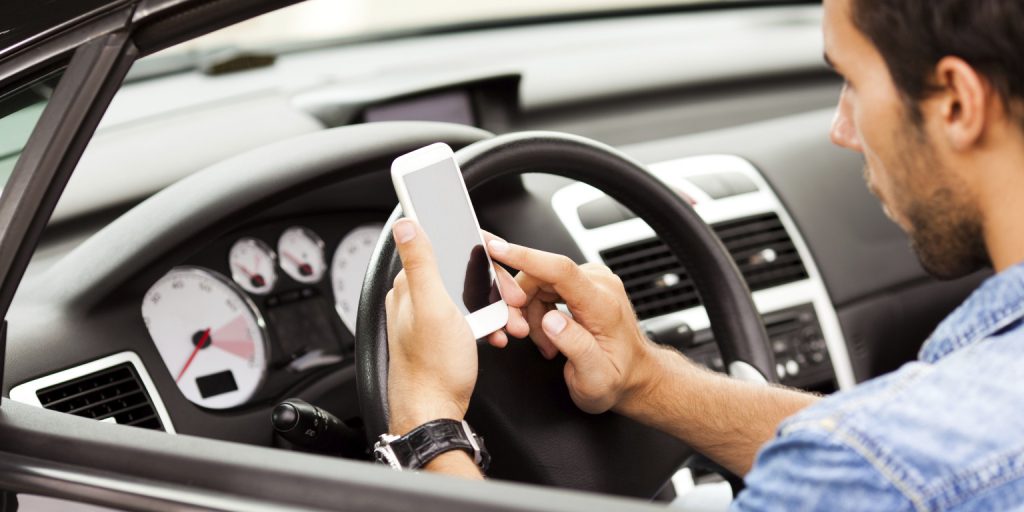
27 Mar Six Poor Driving Habits for LA Drivers to Fix Now
No matter how long you’ve had your license, whether it’s been two months or twenty years, there’s probably some bad habits you’ve picked up along the way. Most drivers find themselves participating in faulty driving behavior, and it can leave you not only in danger of being in an accident, but liable to being found at fault for said accident.
LA is notorious for its gridlock traffic and number of cars, so driving safely is imperative.
We’ve decided to go ahead and put together a list of the top six bad habits that drivers in LA are guilty of, in an attempt to help you and others like you to drive safer:
1. Neglecting Your Turn Signal – Every car comes with this lever that allows you to indicate when you’re going to turn or switch lanes. Few people seem to know how to use it, although many proclaim their annoyance when others don’t as well. Indicating a turn or when you’re going to switch lanes is not only courteous to other drivers, but safer. It allows those around you to know when you’re going to be making any sudden changes or stopping for a chance to turn. Properly warned, those driving around you will be more aware, and therefore safer.
2. Driving While Tired – Driving when you’d rather be asleep is highly dangerous. The last thing you want is to suddenly doze off behind the wheel and veer into another car. Sadly, this is the cause of many accidents. Don’t let this be you. Get plenty of rest before you have to drive anywhere. If you can’t help but be overly tired, then perhaps you should get a ride, either car pool, Uber, or a cab. Stay alert and you’ll be more likely to be safe.
3. Distracted Driving – Whether you’re checking your phone or eating a hamburger, it’s best to save it until you’re not driving. Distracted driving is one of the leading causes of vehicular accidents, and they can be devastating. Try to focus only on the driving and leave everything else until later. You really don’t need to check that text, answer that call, paint your nails or anything else when you’re behind the wheel of your car.
4. Tailgating – There should always be at least three seconds following distance, which is roughly one car length per ten miles per hour (so if you’re traveling 60 miles per hour, you should have six car lengths between you and the person in front of you). Driving too close to the person in front of you puts you and them at risk. If they were to break suddenly, you’d have no ability to stop in time, leaving you at risk of injury and the cause of the crash. Following distance isn’t a myth, it’s a proven way to keep you and others safe while driving.
5. Speeding—We know you’re in a hurry, but there’s no reason to put yourself and everyone around you at risk by speeding. The faster you go, the more impaired your reaction time becomes. It’s not worth your life, or the life of anyone around you to speed. Reversely, it’s also dangerous to go too far below the speed limit, as it can cause accidents just as easily. So, be aware of what the speed limit is and try to stick to it.
6. Not Checking Blind Spots – Many wrecks happen because drivers don’t check their blind spots before switching lanes. It’s a good idea to make sure you’re not actively in anyone’s blind spot, if at all possible, but checking your own is the best way to make sure you’re not liable for a crash. If you’re driving a large vehicle, it’s all the more important to be extra vigilant about smaller cars around you. Always, always check your blind spots before moving into a new lane.
Many Personal Injury claims come from car accidents, and the last thing you want is to be liable for causing that accident. If you’ve been injured in an accident or are looking for more information regarding personal injury claims stemming from vehicular accidents, feel free to contact us directly for a free consultation at (888) 417-1080 or by filling out the form above.
Contact:
RA & Associates, APC
1 (888) 417-1080
info@raandassociates.com/blog
505 N. Brand Blvd.
Glendale, CA 91203

Sorry, the comment form is closed at this time.